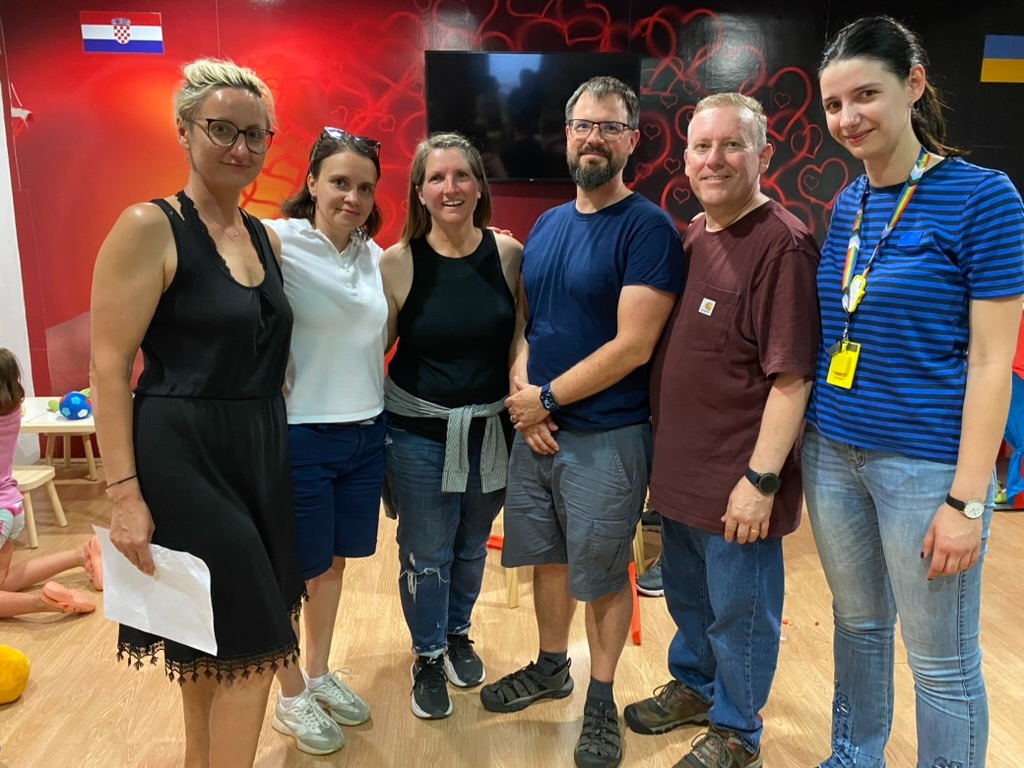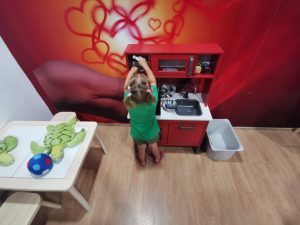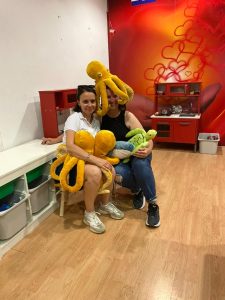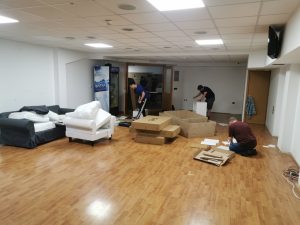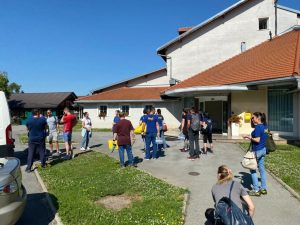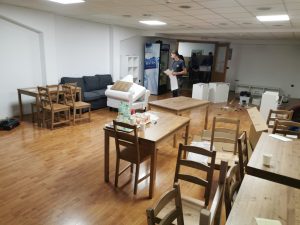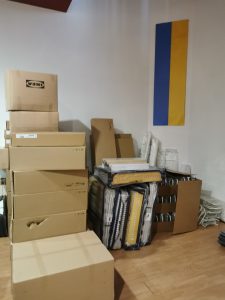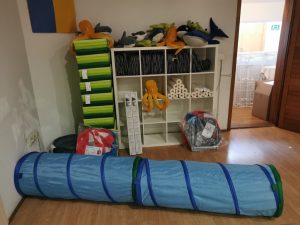Over the past 10 years, NCM Croatia, operating as the Croatian nonprofit “Djela Ljubavi” (Acts of
Love), has been serving people who are refugees worldwide, including those from Syria,
Afghanistan, Iraq, Somalia, and now Ukraine as well.
At the beginning of the war between Russia and Ukraine, after assessing the needs and
resources that the Croatian government and other nongovernmental organizations were
offering, the leaders of Djela Ljubavi decided to continue focusing on people seeking asylum
from the Middle East. Already overlooked and marginalized, the new crisis of Ukrainian refugees
was pushing their immigration processes even further behind. However, true to NCM’s desire in
Croatia to “meet the unmet need,” the leaders of Djela Ljuabavi kept their eyes open to see
where they could help.
In October 2022, Cezi Glendenning, serving as the NCM country leader for the Church of the
Nazarene in Croatia and the secretary of Djela Ljubavi, saw a post on Facebook searching for
specific items needed for people who are refugees from Ukraine. Cezi’s family donated some of
the needed items, and through this point of contact, she met Yulia Lovrenovic. Yulia was a
Russian businesswoman helping 150 Ukrainians at a refugee center near Zagreb, Croatia. Yulia
needed more help and resources to help this community. The meeting with Yulia was followed
by more meetings with the coordinators of the refugee center, two Ukrainian women, Yulia
Kikteva and Victoria, who left Ukraine at the beginning of the war. The leaders of Djela Ljubavi
agreed that it was time to get involved.
“Whenever we begin working with a new community, it is important for us to start
conversations with a question that Jesus asked many times to the people he served: What do
you want me to do for you?” said Cezi. “We see that a question like this pushes us to release
power and enter into a partnership.”
Both Yulia and Victoria communicated that one of the critical needs was mental health support
as well as activities for children. As a result of these conversations, Djela Ljubavi began offering
English classes and recreational activities for children and adults.
Later, Djela Ljubavi organized a concert at the refugee center with an ensemble from Mount
Vernon University and prepared a picnic for some refugee neighbors at a park in Zagreb. Several
women were also invited to attend a performance of Black Swan by a Ukrainian company at the
main theater in Zagreb. Djela Ljubabi also organized summer camps and activities for teens and
children.
As the partnership between refugee neighbors and NCM began to strengthen, Cezi noted some
needs arising.
“We noticed that many of the rooms lacked appropriate furniture to meet the needs of larger
families living in one room,” Cezi said. “This was an old hotel being used as a refugee center,
but [it was] not equipped for it. The rooms had many matrasses on the floor, diaper boxes that
served as containers for their clothes, and boxes that served as tables. The hallways were full of
little tables — or boxes acting as tables – where black tea was being prepared. And when we
asked what the biggest needs were, we learned that drying racks were an unseen, unmet need
so that they had no way to dry their clothes, especially in the cold winter months,” she
explained.
In November 2022, with the help of church members employed by IKEA, who themselves were
refugees, Cezi asked if the store would give a discount on items they needed to purchase.
“IKEA in Croatia has been a great company to refugees,” explained Cezi. “They are one of the
main job providers for refugees in the city, and they treat them with dignity and fairness. We
thought they would be a good partner for us to work with.”
IKEA requested to meet with Martin Glendenning, Central Europe’s NCM coordinator, and Djela
Ljubavi’s president. In that meeting, IKEA asked Djela Ljubavi to send a project proposal, and
they would try to provide needed items at no cost.
The proposal was for resources that totaled about $5,000 USD. After not receiving a response
for several months, Martin contacted IKEA again. They apologized for the delay due to illness,
holiday leave, and other circumstances but that they would reply soon.
Several more months went by, and the needs increased along with the realization that the war
was not ending any time soon so the refugees would be staying longer than they had thought.
Martin called again to offer to buy the needed items at a discount. The response this time was
different. IKEA had been in contact with the United Nations High Commissioner for Refugees
(UNHCR) about this project, and they wanted to visit the refugee center.
After the visit, IKEA said that the project would not only be fully funded but asked that more
items be added to the request.
“It became clear we needed to think long-term. This space needed to be more than just a place
where you wait to go home. This place had to become a temporary home,” explained Cezi.
“Both IKEA and UNHCR encouraged us to expand the list with everything we thought would be
helpful to the families and to add items to common spaces, especially for kids and teens.”
The next day, Cezi and her team developed an exhaustive list.
“We spent eight hours on the IKEA website. This is the most shopping any of us has done in a
day in our entire life! We added more items for the common spaces, along with the essential
and functional items for the rooms,” said Cezi. “We added flowers, picture frames, decorative
pillows, paintings, and many other things that would allow the families to make their space feel
a little more like home. We added items for a teen’s corner, furniture for tea corners for elderly
people, a children’s play area, new dining tables and chairs, and plants for the hallway.”
The project request amounted to about $35,000 USD.
“Thinking they probably would not approve such a large increase in the project request, we
color-coded the project so we could begin cutting back if needed,” explained Martin. “Instead of
asking us to reduce the request, they suggested we add more outdoor furniture because they
noticed there was not any during their visit.”
The final project proposal submitted was worth $40,000 USD.
A few weeks later, UNHCR and IKEA granted all the items in the revised request. When they
eventually delivered the shipment, there were extra items, including boxes of stuffed animals
for the kids.
IKEA sent a team of 15 people who spent the entire day putting furniture together with the
NCM team and people from the refugee center. The atmosphere was filled with joy and activity,
with children laughing and trying to help as everybody contributed to making that space a little
more like home.
“A highlight from the day was seeing two elderly women come and sit down in the dining area
after everything was put together. They just sat, looked around, and smiled with tears in their
eyes,” said Martin.
When all was said and done, it was powerful to see that a simple question like “What do you
want me to do for you?” can enfold so much goodness, hope, and healing for many people
-shared from NCM Magazine
